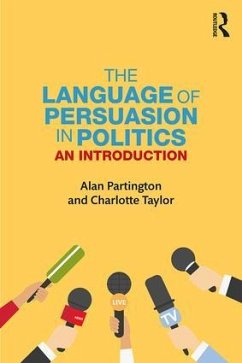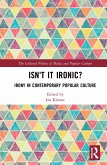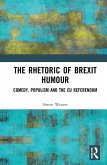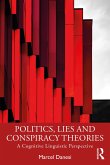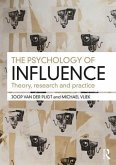This accessible introductory textbook looks at the relationship between politicians, the press and the public through the language they employ, with extensive coverage of key topics including: ¿spin' and ¿spin control' persuasion by authority or by association pseudo-logical arguments hidden presuppositions in questions ¿post truth' and ¿fake news' metaphors and metonymy rhetorical figures Providing insights into the beliefs, character and hidden strategies of the would-be persuader, the authors examine authentic instances from speeches, soundbites, newspapers and blogs, interviews, press conferences, election slogans and satires in a range of contexts such as the 2016 US Presidential election and the UK/ Europe referendum. This book also demonstrates how the study of language use can help us appreciate, exploit and protect ourselves from the art of persuasion. With a wide variety of practical examples from the UK, Europe, US, India, Hong Kong and the Middle East, every topic is complemented with guiding tasks and queries with keys and commentaries at the end of each unit. This is the ideal textbook for all introductory courses on language and politics and related areas.
